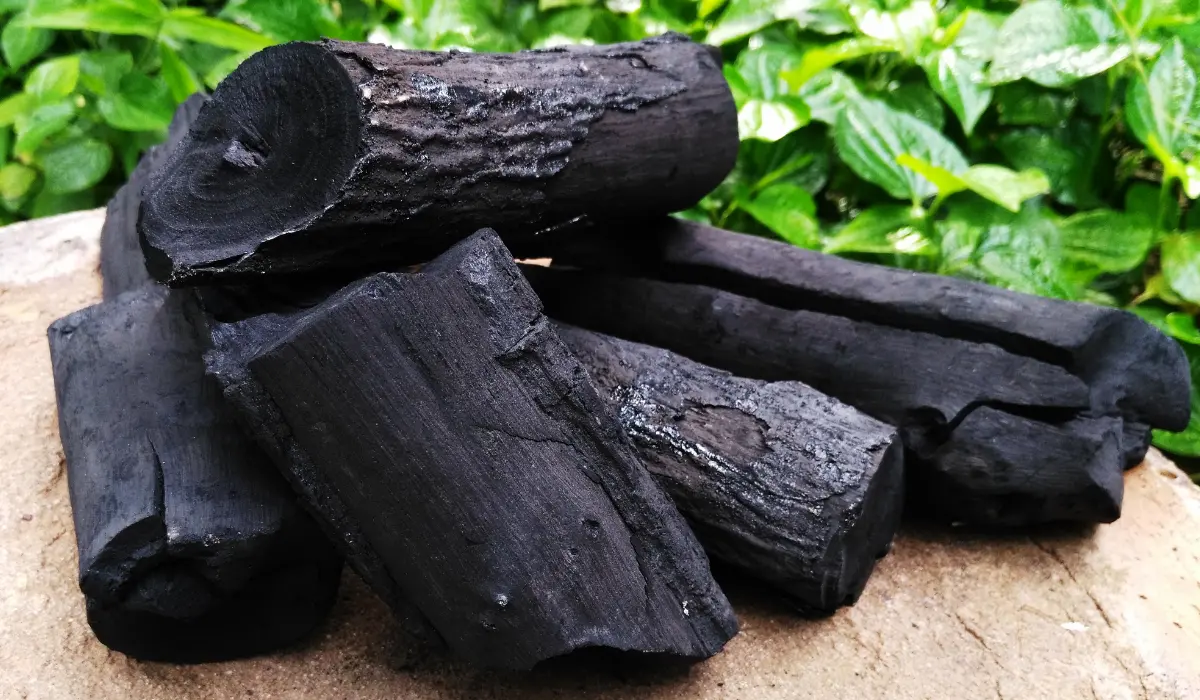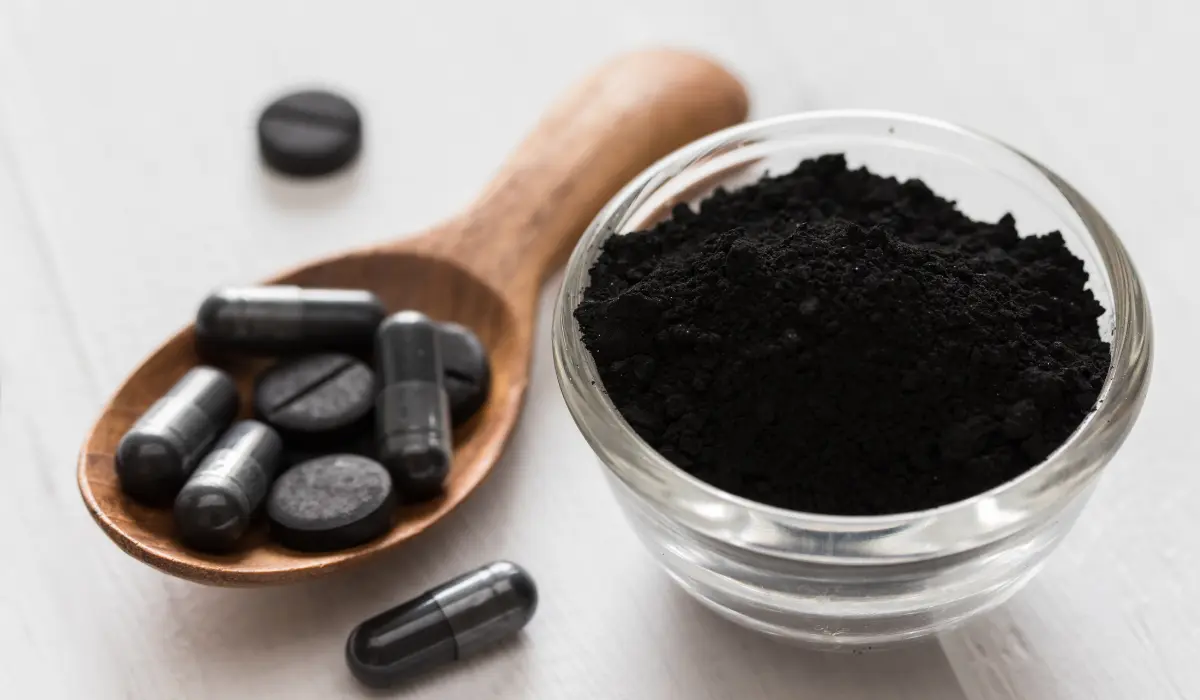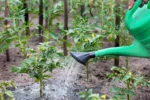Most people think of charcoal as something that belongs under a grill, not in the soil. When I tell fellow gardeners that I use charcoal as part of my growing routine, they often give me puzzled looks.
But charcoal has been used for centuries in agriculture, especially in practices like “terra preta” in the Amazon, where ancient farmers built fertile soils that are still thriving today.
Over the years, I’ve experimented with charcoal in different corners of my garden, from compost heaps to raised beds, and the results have consistently surprised me.
It’s not a magic fix, but it is a powerful tool that can solve problems most gardeners struggle with, nutrient loss, poor soil texture, odor, and even water quality. Let me walk you through the ways I use charcoal and why I recommend it to anyone serious about building healthier soil and stronger plants.
1. Charcoal as a Soil Conditioner
The first and perhaps most valuable use of charcoal in the garden is as a soil conditioner. When you mix it into the soil, charcoal creates pockets of air that improve drainage and aeration.
Heavy clay soils benefit most because charcoal helps break up compacted layers, making it easier for roots to spread out and access nutrients. On the flip side, sandy soils that normally drain too quickly can hold moisture a bit longer when charcoal is present.
I’ve noticed firsthand that plants grown in charcoal-enriched soil are more resilient in dry spells. The charcoal acts like a sponge, soaking up water and releasing it slowly back to the plants when they need it.
This reservoir effect reduces stress on crops like tomatoes and cucumbers, which otherwise suffer from irregular watering patterns. It’s not just about water, though. The porous structure of charcoal also creates safe havens for beneficial microbes that keep the soil ecosystem in balance.
The long-term benefits are perhaps the most exciting. Unlike compost or mulch, which break down relatively quickly, charcoal is stable and can last in the soil for decades.
That means the improvements I make this year will still be helping my soil ten years from now. It’s one of the few soil amendments that continues giving without constant reapplication, making it a sustainable choice for gardeners who want to invest in their soil’s future.
2. Charcoal for Odor and Pest Control
Charcoal’s ability to absorb smells makes it a secret weapon in the garden. If you’ve ever had a compost pile that went sour and filled the yard with unpleasant odors, charcoal can help.
By sprinkling a layer of powdered charcoal into the pile, I’ve been able to neutralize the smell and bring balance back to the decomposition process. The same trick works for garden beds where organic fertilizers like fish emulsion sometimes leave behind strong odors.
But the benefit doesn’t stop at odors, charcoal can deter pests too. I’ve used crushed charcoal around the base of plants as a natural barrier against slugs and snails.
The gritty texture discourages them from crossing, and it’s far safer than using chemical pellets. Even small insects seem less attracted to soil treated with charcoal dust, possibly because it keeps the environment drier at the surface.
There’s also a secondary benefit when it comes to small animals. I’ve noticed that raccoons and stray cats tend to avoid freshly treated compost heaps or beds with charcoal mixed in.
My guess is that the odor-absorbing property masks scents that usually draw them in. It’s not a guaranteed solution to every pest problem, but it’s another layer of defense that works with nature rather than against it.
3. Charcoal in Compost Management
If you’ve ever struggled with a compost heap that doesn’t break down evenly, charcoal can change the game. When I mix small amounts of crushed charcoal into my compost, it helps stabilize nutrients, especially nitrogen, which is notorious for escaping as ammonia gas.
Instead of losing those nutrients to the air, the charcoal binds them and makes them available later when the compost is spread on garden beds.
Another advantage is pH balance. Compost can swing too acidic or too alkaline depending on what goes into it. Charcoal acts like a buffer, preventing extreme shifts and creating a friendlier environment for the microbes that drive decomposition.
The end result is a darker, richer compost that feels more uniform and crumbly in texture. I’ve found that adding charcoal can shorten the time it takes for compost to mature, which means I can turn piles faster and feed the garden more regularly.
Of course, moderation is key. I never dump large chunks of charcoal into compost because they don’t break down. Instead, I crush it into smaller pieces before adding.
The sweet spot for me has been around 5–10% charcoal by volume in a pile. That way, it supports decomposition without overwhelming the process. Over time, those micro-charcoal particles end up in the soil, where they continue to work their magic.
4. Charcoal for Water Purification in the Garden
Clean water is often overlooked in gardening, but it makes a big difference in plant health. Many of us collect rainwater or use barrels, but standing water can become a breeding ground for algae, bacteria, and even mosquito larvae. Charcoal offers a natural filtration method that keeps stored water cleaner and safer for plants.
I’ve built simple DIY filters by filling mesh bags with crushed charcoal and placing them inside rain barrels. The difference is clear, literally. The water looks and smells fresher, and my plants respond better to it compared to untreated water that sometimes carries a sour or stagnant odor. Even container plants, which are more sensitive to water quality, perk up when given water filtered this way.
For anyone irrigating with drip lines or hoses, charcoal can also reduce clogging by filtering out impurities before they enter the system. It’s an inexpensive alternative to commercial filters, and it can be refreshed by drying the charcoal in the sun and reusing it. This is one of those garden hacks that not only benefits the plants but also extends the life of equipment and makes maintenance easier.
5. Charcoal as a Growth Booster (Biochar Effect)
The term “biochar” gets tossed around a lot in sustainable agriculture circles, and for good reason. When charcoal is prepared and integrated into soil properly, it becomes biochar, a long-lasting soil amendment that supercharges plant growth.
The science behind it is simple: biochar holds nutrients in place, prevents leaching, and creates an ideal habitat for microbes that transform those nutrients into forms plants can use.
I’ve tested biochar in raised beds side by side with untreated soil, and the difference has been remarkable. Crops in the biochar-enriched beds not only grow faster but also produce higher yields.
For example, my peppers had stronger stems, more flowers, and larger fruit compared to those grown without biochar. The soil itself became richer in organic matter over time, even though I added the same amount of compost to both beds.
What makes biochar unique is its longevity. Once it’s in the soil, it doesn’t disappear like compost or fertilizer. Instead, it becomes a permanent part of the soil structure, locking in carbon and building fertility for the long haul.
For me, this has changed the way I think about soil management. Instead of constantly adding short-term fixes, I can focus on building a foundation that will serve my garden year after year.
Final Thought
Charcoal may not be the first thing you think of when planning a garden, but it deserves a place right alongside compost, mulch, and organic fertilizers. It’s a humble material with outsized potential, able to improve soil texture, reduce odors, manage pests, purify water, and even boost plant growth for years to come.

Every time I’ve worked with charcoal, I’ve discovered new ways it makes the garden healthier and more resilient. If you’re curious, start small, experiment, and let your own garden teach you how this overlooked resource can make a difference.
FAQs
A general guideline is about 5–10% of the total volume. Too much can dry out the soil or unbalance the compost. Always crush charcoal before mixing it in. Charcoal is usually slightly alkaline, but in small amounts, it won’t drastically alter pH. In fact, it often helps buffer soil, preventing extreme swings. Activated charcoal has a higher surface area and is great for water filtration, but regular natural charcoal works just as well for soil improvement and compost management. Yes, overusing charcoal can cause soil to dry out or tie up nutrients temporarily. Always start with small amounts and observe how your plants respond. How much charcoal should I add to soil or compost?
Will charcoal change the pH of my garden soil?
Is there a difference between charcoal and activated charcoal for gardening?
Can using charcoal harm my plants if I overdo it?




